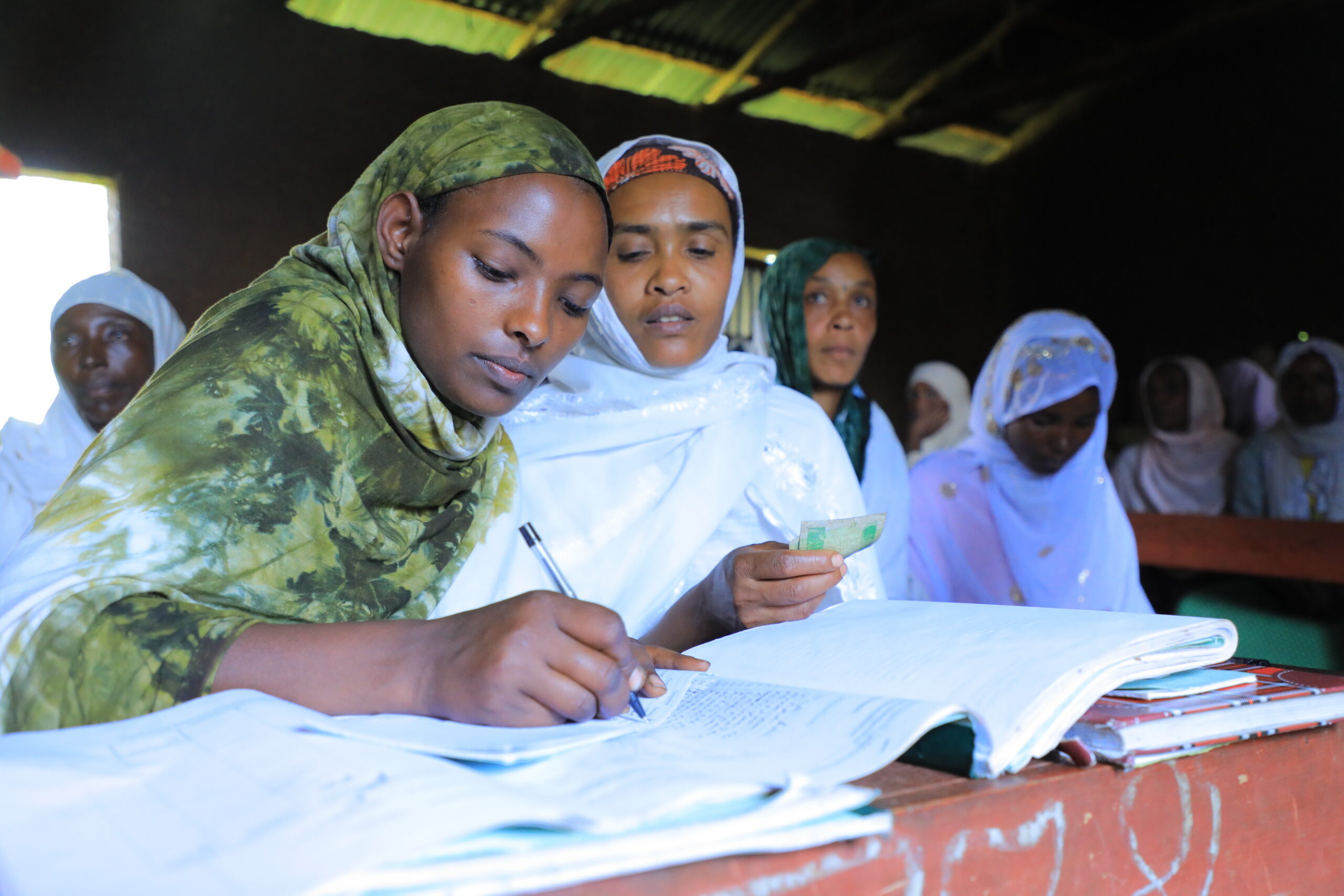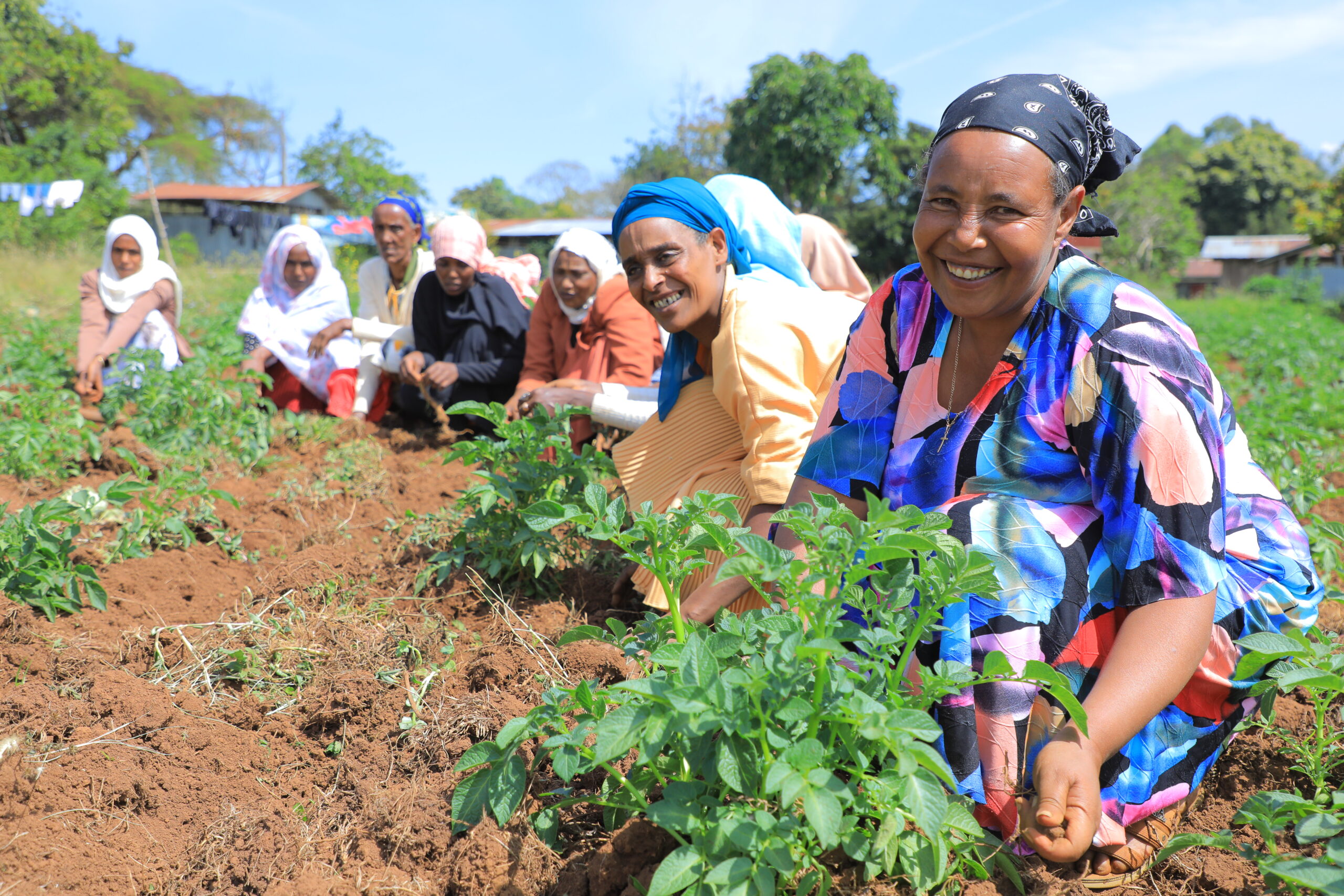To learn more about Digital Green’s AI-powered platform and how it impacts small-scale farmers in India, Ethiopia, Kenya, Nigeria and Brazil, we encourage you to sign up for our newsletter.
How Innovation and Technology Advance Gender Equity

Women play an important role in agriculture, natural resource management, and food security in Ethiopia, but they have disproportionate access to extension services, in addition to the cultural factors that prevent them from joining traditional farmer groups. To ensure women’s economic, social, and political empowerment, Digital Green started implementing the self-help group (SHG) model in the Advancing Conservation, Agriculture, and Livelihoods project funded by the Packard Foundation in Jimma, Ethiopia in 2019. As part of the project, Digital Green organized and trained 40 self-help groups with an average membership of 25, totaling 1000 women. SHG members were provided with digital extension services on various topics, including vegetable production, animal forage preparation, and conservation farming practices.

Birtukan Yalew, chairperson of the Bikiltu SHG in Gera woreda said: “Digital Green helped us a lot. We were established as a self-help group and started working on planting vegetables. At first, we didn’t have land to use. We used to plant the vegetables on rented land, which affected the profits we used to get. But now, we have enough support from the government and are provided with land, which gives us better results in terms of capacity and profits. We are also planning to engage in honey production as well.”
Revolving loans have also enabled participants to invest in new income generating activities, further contributing to group profits and savings. Rotating facilitator and officer roles have boosted members’ self-confidence. Members believe they have gained respect in both the village and at home with increased levels of shared decision-making. With members each saving 10-15 ETB (0.25 USD) weekly, accumulated savings now total ETB 563,000 (USD 10,690). Prior to joining the SHGs, only a few members had access to loans from local microfinance institutions and now several group members have opened their own bank accounts. The SHGs have also saved over ETB 211,000 (USD 4,000) to support each other during difficult times. The total capital for all the groups now exceeds ETB 3.5 million (USD 66,475).
With the aim of digitization and seamless management of Digital Green’s SHG Operations, we work to improve the digital literacy of the women engaged in self-help groups by providing the group leaders with smartphones and training on digital tools. The digitization process enables the groups with digital history created for members to increase saving coordination and transparency of their transactions including weekly contributions, loan repayments, and other group interactions within their SHG, which also contributes to household resilience and transformational development at the household and community levels.
Currently, Digital Green is implementing phase two of the Advancing Conservation, Agriculture, and Livelihood project (August 2022- July 2025) targeting to reach 1,450 women through the establishment of 58 new women’s SHGs while continuing to build up the existing 40 women’s SHGs.